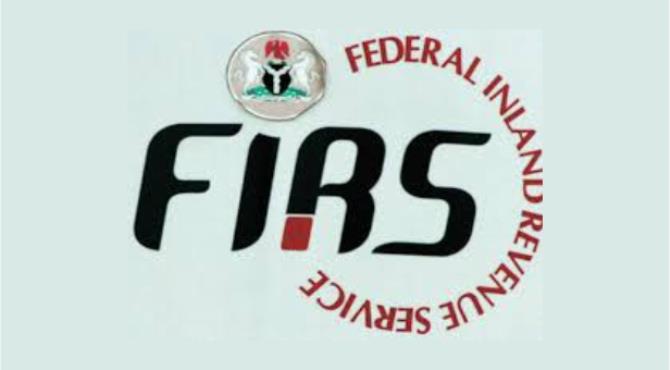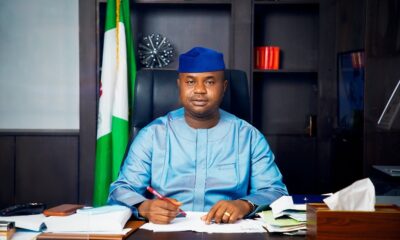The Federal High Court sitting in Port-Harcourt declared that the Rivers State Government is the legal body assigned to collect Valued Added Tax (VAT) and Personal Income Tax (PIT) in the state and not the Federal Inland Revenue Services(FIRS).
The court, presided over by Justice Stephen Dalyop Pam, barred the Federal Inland Revenue Service and the Attorney-General of the Federation, both first and second defendants in the suit, from collecting, demanding, threatening and intimidating residents of Rivers State to pay to FIRS, personnel income tax and Value Added Tax.
Justice Pam made the assertion while delivering judgement in suit No. FHC/PH/CS/149/2020, filed by the Attorney General for Rivers State(plaintiff), against the Federal Inland Revenue Service (first defendant) and the Attorney General of the Federation (second defendant).
The court, which granted all the eleven reliefs sought by the Rivers State government, stated that there was no constitutional basis for the FIRS to demand and collect VAT, Withholding Tax, Education Tax and Technology levy in Rivers State or any other state of the federation, being that the constitutional powers and competence of the Federal Government is limited to taxation of incomes, profits and capital gains which does not include VAT or any other species of sales, or levy other than those specifically mentioned in items 58 and 59 of the Exclusive Legislative List of the constitution.
The judge dismissed the preliminary objections filed by the defendants that the court lacks jurisdiction to hear the suit and that the case should be transferred to the Court of Appeal for interpretation.
Justice Pam, who also dismissed the objection raised by the defendants that the National Assembly ought to have been made a party in the suit, declared that the issues of taxes raised by the state government were issues of law that the court is constitutionally empowered to entertain.
He declared that after a diligent review of the issues raised by both the plaintiff and the defendants, the plaintiff had proven beyond doubt that it is entitled to all the eleven reliefs it sought in the suit.
The court agreed with the Rivers State government that it is the state and not FIRS that is constitutionally entitled to impose taxes enforceable or collectible in its territory of the nature of consumption or sales tax, VAT, education and other taxes or levies, other than the taxes and duties specifically reserved for the Federal Government by items 58 and 59 of Part 1 of the Second Schedule of the 1999 Constitution as amended.
Also, the court declared that the defendants are not constitutionally entitled to charge or impose levies, charges, or rates (under any guise or by whatever name called) on the residents of Rivers State and indeed any state of the federation.
Among the reliefs sought by the Rivers State government, is a declaration that the constitutional power of the Federal Government to impose taxes and duties is only limited to the items listed in items 58 and 59 of Part 1 of the second schedule of the 1999 Constitution as amended.
The Rivers State government had also urged the court to declare that, by virtue of the provisions of items 7 and 8 of Part II(Concurrent Legislative List) of the Second Schedule of the constitution, the power of the Federal Government to delegate the collection of taxes can only be exercised by the state government or other authority of the state and no other person.
The state government had further asked the court to declare that all statutory provisions made or purportedly made in the exercise of the legislative powers of the Federal Government, which contains provisions which are inconsistent with or in excess of the powers to impose tax and duties, as prescribed by items 58 and 59 of Part I of the Second Schedule of the 1999 constitution, or inconsistent of the power to delegate the duty of collection of taxes, as contained in items 7 and 8 of Part II of the Second Schedule of the constitution, are unconstitutional, null and void.
Lead counsel for the Rivers State government, Donald Chika Denwigwe (SAN), who spoke to journalists after the court session, explained that the case is all about the interpretation of the constitution as regards the authority of the Government at the state and federal levels to collect certain revenue particularly, VAT.
“So, during the determination of the matter, some issues of law were thrown up like, whether or not the case should be referred to the Court of Appeal for the determination of some issues.
“The court noted that the application is like asking the Federal High Court to transfer the entire case to the Court of Appeal. In which case, if the court so decides there will be nothing left to refer back to the Federal High Court as required by the constitution.”
According to the lawyer, the court refused that prayer and decided that the case was in its proper place before the Federal High Court and to determine it.
Speaking on the implication of the judgement, Denwigwe said it is now unlawful for such taxes as VAT in Rivers State to be collected by any agency of the Federal Government.
“In summary, it is a determination that it is wrong for the Federal government to be collecting taxes which are constitutionally reserved for the State governments to collect. The implication of the judgement is that the government (Federal and State) as an authority under the constitution, should be advised by the judgement that it is the duty of all government authorities to comply with and obey the law so long as the court has interpreted it and said what that law is.
“So, in other words, the issue of Value Added Tax (VAT) in the territory of Rivers State and Personal Income Tax should be reserved for the government of Rivers State.”
The Lawyer to FIRS, O.C. Eyibo said he will study the judgment and advise his client.


 Naira4 weeks ago
Naira4 weeks ago


 Naira4 weeks ago
Naira4 weeks ago




 Naira4 weeks ago
Naira4 weeks ago




 Naira3 weeks ago
Naira3 weeks ago
 Commodities4 weeks ago
Commodities4 weeks ago


 News4 weeks ago
News4 weeks ago
 Travel4 weeks ago
Travel4 weeks ago




 Naira3 weeks ago
Naira3 weeks ago



















